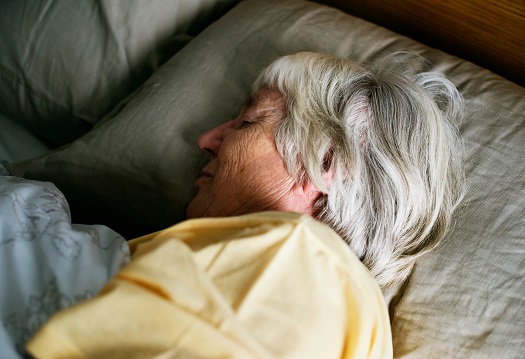
When seniors progress in age, their natural sleep cycles can change. Since seniors tend to wake more frequently during the night, they may not get enough rest with a single sleeping session. Being well rested is an important part of good health, so seniors who feel tired during the day should take naps. Here are a few dos and don’ts of napping for older adults.
Do: Nap in a Quiet, Dark Place
Even if your senior loved one is able to sleep in a noisy area, this isn’t an ideal napping solution. Repeated loud noises keep the brain from entering the deeper phases of sleep. Seniors who nap in noisy spots may benefit from taking off hearing aids or putting in earplugs. Brightness can also make it challenging to take a nap, so try to find a nice dark room your loved one can rest in.
Hiring a professional caregiver is one of the best ways to ensure your loved one makes healthy lifestyle choices that promote deep sleep. Though you may be researching multiple agencies that provide home care, Carmichael, CA, Home Care Assistance has much to offer your family and your elderly loved one. We are leaders in the senior home care industry, offering proprietary programs like our holistic Balanced Care Method and around-the-clock assistance from reliable, experienced caregivers. Trust Home Care Assistance to help your loved one enjoy a happier and healthier life in the golden years.
Don’t: Nap Too Long
The ideal nap for a senior should only last around 30 minutes. Those who are more tired can nap a little longer, but no nap should exceed 90 minutes. Seniors who nap all day may end up feeling very groggy when they wake up, and they may find it difficult to get enough sleep at night.
Do: Take Early Afternoon Naps
Naps between 2 and 3 p.m. fit in well with the traditional sleep schedule. The ideal time for seniors to take naps is typically in the afternoon. An hour or two after lunch is the perfect time to take a nap because your loved one can still wake up early enough to fall asleep at night.
Don’t: Nap as a Substitute for Actual Sleeping
Light naps can be an excellent way for seniors to recharge their energy. However, no number of naps is a replacement for a good night’s rest. The brain needs the deep REM sleep cycles, so longer periods of sleep are often helpful for mental health. If your loved one experiences insomnia, you need to treat the disorder instead of just encouraging him or her to take a nap.
Insomnia is a serious health concern that can impact overall quality of life. If your senior loved one has been diagnosed with a serious condition and needs help with tasks like meal prep, transportation, bathing, and grooming, reach out to Home Care Assistance, a leading provider of senior care families can trust. We also offer comprehensive care for seniors with dementia, Alzheimer’s, and Parkinson’s.
Do: Sip Coffee Right Before a Nap
Having caffeine before falling asleep might seem like a strange practice, but it can be useful for seniors. It takes roughly half an hour for caffeine to kick in after drinking it, and 30 minutes also happens to be the ideal time for a refreshing nap. Your loved one can have a little coffee right before the nap and wake up feeling refreshed instead of groggy. Seniors who find coffee too invigorating can get the same effects from green tea.
Helping a senior practice good sleep hygiene can be a difficult task. Families who find it difficult to care for their aging loved ones without assistance can benefit greatly from professional respite care. Carmichael, CA, family caregivers who need a break from their caregiving duties can turn to Home Care Assistance. Using our proprietary Balanced Care Method, our respite caregivers can encourage your loved one to eat well, exercise regularly, get plenty of mental and social stimulation, and focus on other lifestyle factors that promote longevity. To learn about our revolutionary in-home care options, call one of our friendly Care Managers at (916) 485-4663 today.